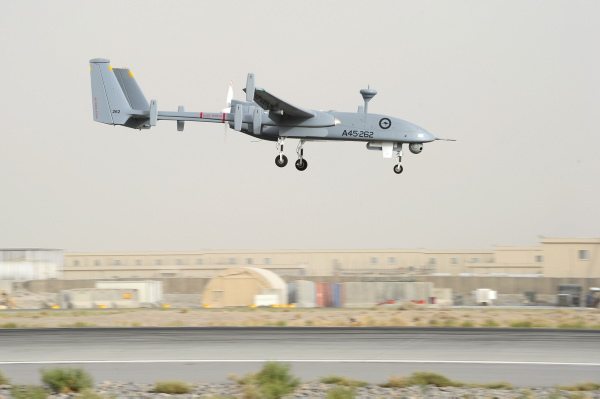The Defense Department is driving innovation across all defense intelligence functions, the Pentagon’s intelligence chief said yesterday.
Michael G. Vickers, undersecretary of defense for intelligence, discussed defense intelligence priorities and partnerships during remarks at the annual Geospatial Intelligence Symposium in Orlando, Fla.
When he took the job in early 2011, Vickers said, he set four priorities:
- Operationally dismantle and strategically defeat al-Qaida and its affiliates;
- Set conditions for a successful security transition in Afghanistan;
- Prevent proliferation of weapons of mass destruction, principally, but not exclusively, in Iran and North Korea; and
- Defend the nation against cyber threats.
Vickers said he would now add a fifth: “Enabling the Syrian people to determine their own destiny, and shaping the political transitions that are under way across the Arab world in ways supportive of U.S. interests.”
The “big five” strategic priorities spur a need for innovation in four areas, Vickers said:
- Counterterrorism and counterproliferation;
- Projecting power in anti-access and area-denial environments;
- Expanding global coverage and global reach; and
- Rapidly building cyber capabilities to outpace existing and emerging threats.
Defense intelligence capabilities are building in all of those areas, Vickers said, adding that the highly classified nature of initiatives permits discussing them only in general terms.
In countering terrorism and proliferation of weapons of mass destruction, he said, the U.S. fleet of Predator and Reaper unmanned aerial vehicles – what he called “the signature weapon” — is enabling the most precise campaign in the history of warfare.
Over the next five years, the department will substantially improve the resolution of its geospatial intelligence sensors, and add new signals intelligence packages, Vickers said. The department also will improve its precision-strike and foliage-penetrating capabilities, he added.
In addition, Vickers said, defense intelligence officials will develop and field robust and resilient intelligence, surveillance and reconnaissance capabilities that can address anti-access and area-denial challenges.
Department doctrine lists key anti-access capabilities U.S. forces may face as ballistic and cruise missiles, long-range reconnaissance and surveillance systems, anti-satellite weapons, submarines, cyber and terrorist attacks, and special operations forces.
“This is a critically important area for us – it is the operational dimension of our strategic shift to Asia,” Vickers told the Florida audience.
The department has two major initiatives aimed at increasing global coverage, he said. First is an overhead architecture “that will provide us with a truly integrated system of systems for the first time, along with much greater persistence.”
Second, he added, is the Defense Clandestine Service, which defense officials said provides increased integration between the Defense Intelligence Agency and the broader intelligence community. Vickers said the service “enable[s] us to be more effective in the collection of national-level clandestine human intelligence across a range of targets of paramount interest to the Department of Defense.”
In the cyber realm, defense intelligence is building a force “to defend our nation when called upon, and to exploit the full potential of this important new warfare domain,” Vickers said.
In all areas of effort from counterterrorism to cyber, Vickers said, he emphasizes four key approaches: intelligence integration from the national to the tactical levels, partnership between DOD and the CIA, intelligence sharing with foreign partners, and fostering a closer partnership with Congress on intelligence matters.
Geospatial intelligence entered a new era with the Predator and Raptor unmanned aircraft, Vickers noted, with the transition from still imagery to full-motion video. That technological leap, integrated with other forms of intelligence, “has effected a revolution in counterterrorism operations,” he said.
Geospatial intelligence capabilities “will remain central to most, if not all, of our core national security challenges,” Vickers said.
“It provides responsive warning, situational awareness and insight to our policy makers and operators, and provides a unique source of analysis of enduring and emerging challenges,” he said.
The next big leap in geospatial intelligence capabilities, Vickers said, will include platforms and architectures with greater persistence, resilience and intelligence integration systems; more affordable optics; and more sensitive sensors.
Defense intelligence professionals face a challenge, he acknowledged, as “threats expand in scope and complexity while budgets remain flat or decline.” The principal task is ensuring that evolving capabilities align with top national security challenges, Vickers said.
“I believe that we are focused on the most important challenges confronting defense intelligence, and that we are aggressively pursuing innovative solutions to these challenges,” he said.










